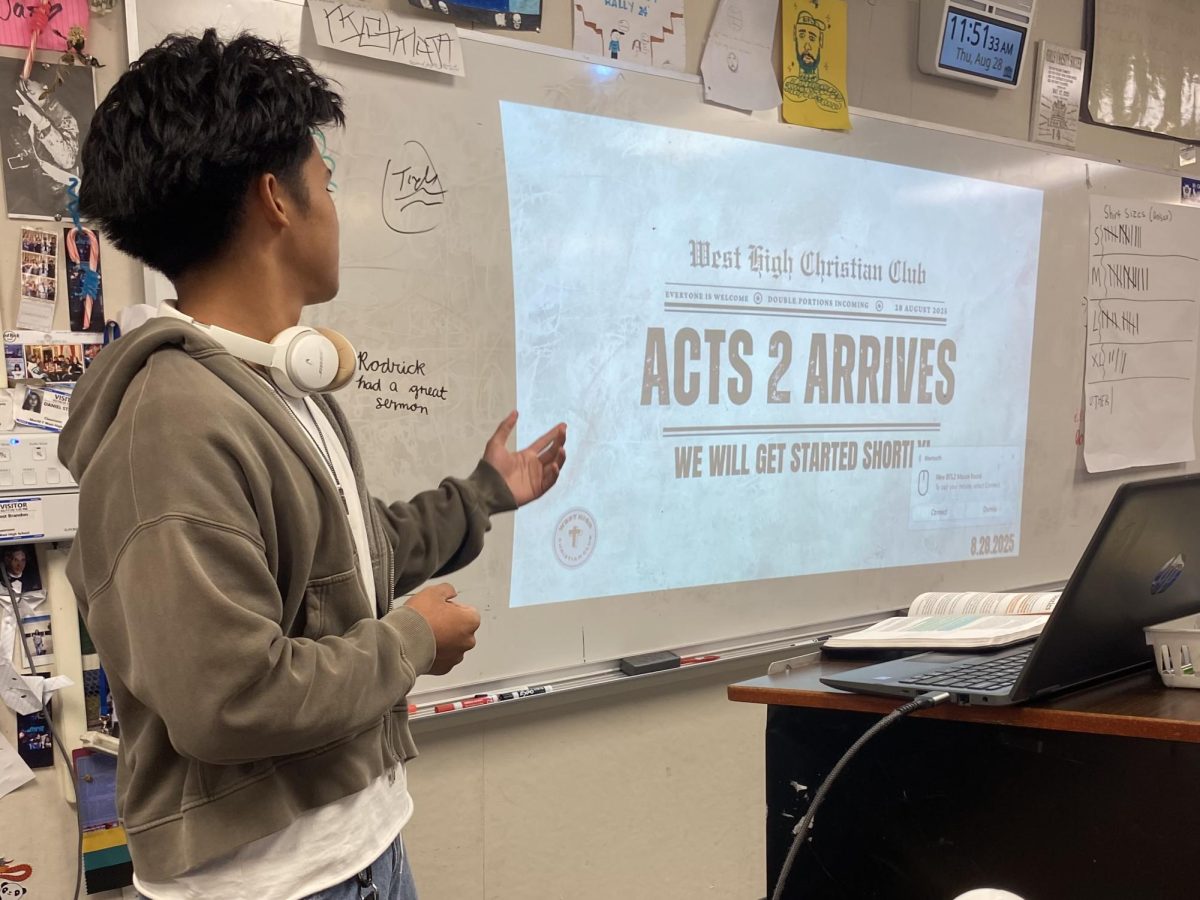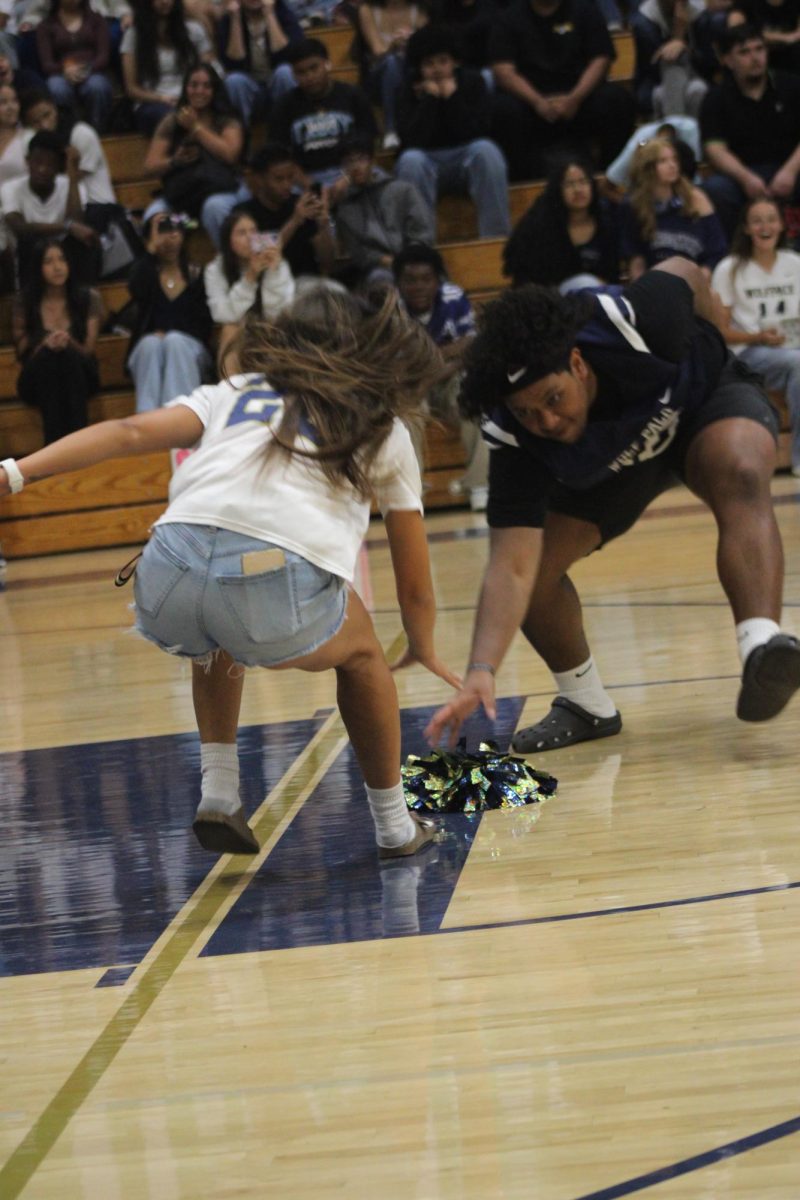Schools are meant to be a place where students go to learn. They should feel safe and cared for no matter their race, ethnicity, sexuality, etc. According to the West High mission statement, “We will provide all students with a safe, caring, and engaging learning environment in preparation for college and careers.” This statement is plastered in every classroom on campus, but is the school truly doing all they can to keep to it?
I first spoke to the principal of Merrill F. West High School, Gary Henderson. I asked him, “How well do you think [our school] has been keeping to the mission statement?” He did not directly answer this question, but he did say, “…I think we strive for that every day. I have been here five months and that’s my mission…there are some challenges I think that’s my job to work through those challenges and make [West High] a better place.”
I then listed him some of the derogatory things that have been said in classes and asked him, “How do you think these things effect the kids that are targeted by them?” While he, again, did not answer this question, he said, “It makes me sick to my stomach, honestly. Those things should be reported. As an AP, I don’t tolerate it. We’re not just going to have the message fall to deaf ears… I think something like that is not only suspensible but expellable.”
To close it out, I asked him what he has to say to the students that hear these things and are targeted by them. He said, “I would like them to come to us and let us know because that is the only way we can address it. We can’t change the culture and the behavior unless we address every single one that’s reported. We plan on doing that… We cannot make people report this because they don’t want to be a snitch or whatever, but we keep it confidential.”
Next, I spoke with Eden Frangos, who is a biology teacher here at West High. I started by asking “How do you feel West High has been doing to keep to our mission statement?’ She said, “…. I think they are doing their best, but I think we just need a little more time.” Next, I asked her, “How do you think the derogatory things that are being said in classes affect the students being targeted by them?” She said, “It is impossible to say the kind of span, or breath, or impact this is having. Especially because it is just so normalized… That is the problem, right? Everyone is saying it. It has become common place, and it is the kind of language that doesn’t belong most definitely in a professional setting, why would it be okay in an academic setting.”
I then asked, “How often are you hearing certain things like this being said?” She responded, “… I hear it like three to five times a day. It is quite significant.” I would like to add, in her class, it is said around fifteen to twenty times a day, it just is not heard. Frangos feels that it makes more of an impact if it is a student telling another student not to use slurs. She ends by saying that students hearing these things would feel unsafe or targeted and that she will make sure to enforce the rules regarding these slurs. Also, for the teachers, if you hear these slurs being said, it is important to do something about it.
Finally, I interviewed Paul Salmassy, a special education teacher. He starts by acknowledging in a lot of ways, West strives to do better, but they have not met this mission statement. They can and have the tools to do better. Paul states, “I unfortunately have heard the n-word too many times, about this issue too many times. Both from students who complain about it, and students who just do to (say these slurs).” When asked how he thinks hearing these things could make the targeted students feel, he said he cannot imagine how students hearing these things and who are targeted them feel. If he could give any idea from what students have told him about how they feel hearing these things, it shakes them to their core and phycological hurts them. He feels that people who say these things should not just be removed, but eliminated from the classroom until they can learn to do better.
The consequences that you are supposed to receive if heard saying any slur to any race, ethnicity, or sexuality is a suspension of up to five days. Teachers also receive consequences if they hear these sorts of things and do not give out a punishment. Barely anything, if anything, is being done. Students say slurs, mostly the N-word, all day in classes yet are not getting this suspension, let alone a referral due to teachers ignoring it and students not reporting it. Nothing is going to change; students are going to continue to feel unsafe and uncomfortable in classrooms if these things are not reported and punished.







